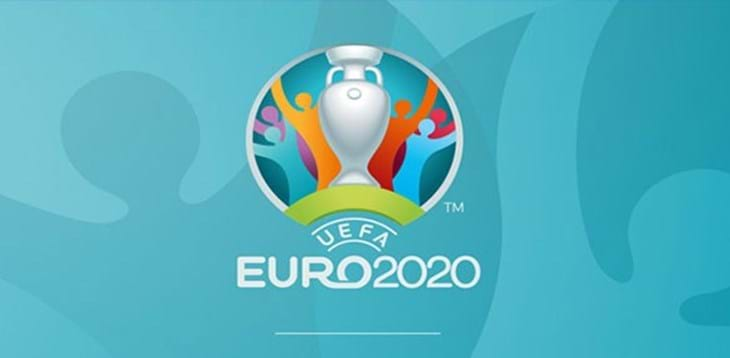
Euro2020 info: how works, from group stage to finale
Maggio 13, 2021The next European football Euro2020 should have been played in June 2020 but, with the Coronavirus emergency throughout Europe, it has been postponed to 2021. In this article we offer a complete picture of how the European Championship works: from the teams participating in the stadiums that will host the matches, from the groups to the ranking criteria, up to all the main rules of the tournament.
I contenuti della pagina
Euro2021, when starts and when ends
The Europeans begin on 11 June 2021 with the inaugural match at the Olympic stadium in Rome between Italy and Turkey at 9 pm and end on 11 July 2021 with the final at the Wembley stadium in London.
The European cup: weight and height of the trophy
European-trophyThe European football cup is officially called the ‘Henri Delaunay Cup’. This name is in honor of the first UEFA general secretary and promoter of the first edition of the event. How much does the cup weigh? The trophy, up for grabs since the 2008 edition, is in pure silver and weighs 12 kg. The height is 60 centimeters.
The stadiums of Euro2020 and the matches they will host
The European will be the first itinerant in history. There will be no host nation but there will be several stadiums across Europe that will host the Euro2020 matches. In this paragraph there are all the stadiums of Euro2021 with the related competitions scheduled in London, Rome and in other cities.
| CITTA' | STADIO | CAPIENZA | PARTITE |
|---|---|---|---|
| Amsterdam (Olanda) | Johan Cruijff Arena | circa 55mila | Olanda-Ucraina, Olanda-Austria, Macedonia-Olanda + un ottavo |
| Baku (Azerbaigian) | Stadio Olimpico | circa 69mila | Galles-Svizzera, Turchia-Galles, Svizzera-Turchia + un quarto |
| Bucarest (Romania) | Arena Nationala | circa 57mila | Austria-Macedonia, Ucraina-Macedonia, Ucraina-Austria + un ottavo |
| Budapest (Ungheria) | Puskas Arena | circa 68mila | Ungheria-Portogallo, Ungheria-Francia, Portogallo-Francia + un ottavo |
| Copenaghen (Danimarca) | Stadio Parken | circa 38mila | Danimarca-Finlandia, Danimarca-Belgio, Russia-Danimarca + un ottavo |
| Glasgow (Scozia) | Hampden Park | circa 52mila | Scozia-Rep Ceca, Croazia-Rep Ceca, Croazia-Scozia + un ottavo |
| Londra (Inghilterra) | Wembley | circa 90mila | Inghilterra-Croazia, Inghilterra-Scozia e Rep Ceca-Inghilterra + 2 ottavi, semifinali e finale |
| Monaco (Germania) | Allianz Arena | circa 75mila | Francia-Germania, Portogallo-Germania e Germania-Ungheria + un quarto |
| Roma (Italia) | Stadio Olimpico | circa 72mila | Turchia-Italia, Italia-Svizzera e Italia-Galles + un quarto |
| San Pietroburgo (Russia) | Stadio S.Pietroburgo | circa 68mila | Belgio-Russia, Finlandia-Russia, Finlandia-Belgio, Polonia-Slovacchia, Svezia-Slovacchia, Svezia-Polonia + un quarto |
| Siviglia (Spagna) | Stadio de la Cartuja | circa 60mila | Spagna-Svezia, Spagna-Polonia e Slovacchia-Spagna + un ottavo |
Euro2020 Group stage and teams
- Group A: Turkey, Italy, Wales, Switzerland
- Group B: Denmark, Finland, Belgium, Russia
- Group C: Netherland, Ukraine, Austria, Macedonia
- Group D: England, Croatia, Scotland, Czech Republic
- Group E: Spain, Sweden, Poland, Slovakia
- Group F: Hungary, Portugal, France, Germany
Euro2020 groups, the ranking criteria in order
What happens if two national teams have the same points in the group? The head-to-head matches count or the goal difference is worth let’s see how the ranking is established with two or more teams with the same points. Here is the order of the ranking criteria if two or more teams are tied on points:
- Points in head-to-head matches
- Goal difference in head to head matches
- Goals scored in direct matches
After applying these criteria, if there are still ‘tied’ teams, the same criteria are reapplied but only between the teams in question. In case of further parity, the following criteria are passed:
- Total goal difference
- Goals scored
- Best Fair Play Conduct (one point for each yellow card, three points for each dismissal)
- Position in the ranking of qualifications
But be careful, there is a very special rule that includes any penalties on the last day of the group stage. If two teams, with the same points and the same number of goals scored and conceded, compete in the last match of the group and are still tied for points at the end of the day, the final classification is defined with penalties. Penalties are expected only no other team in the group has the same points at the end of the group stage.

